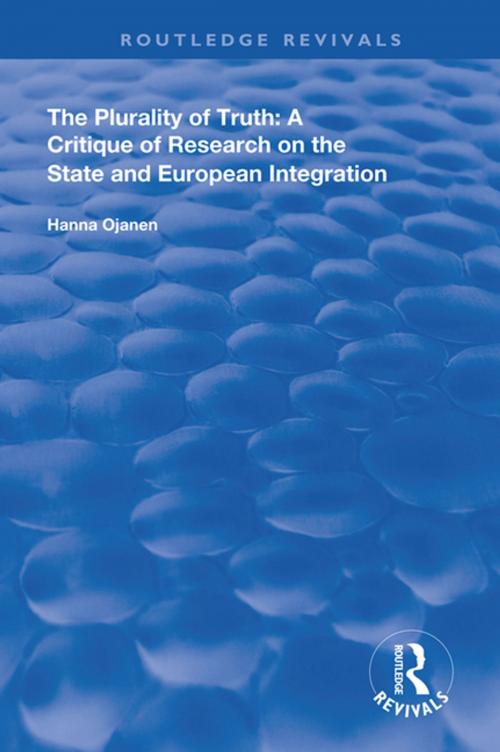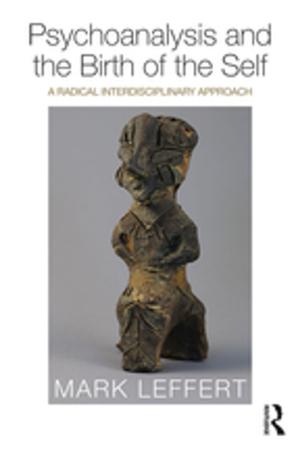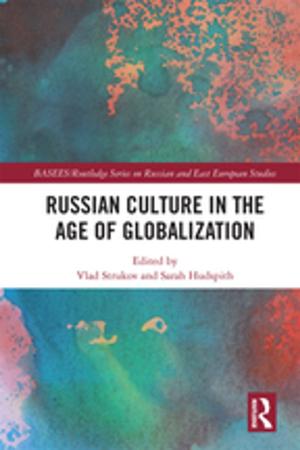The Plurality of Truth
A Critique of Research on the State and European Integration
Nonfiction, Social & Cultural Studies, Political Science| Author: | Hanna Ojanen | ISBN: | 9780429802041 |
| Publisher: | Taylor and Francis | Publication: | January 4, 2019 |
| Imprint: | Routledge | Language: | English |
| Author: | Hanna Ojanen |
| ISBN: | 9780429802041 |
| Publisher: | Taylor and Francis |
| Publication: | January 4, 2019 |
| Imprint: | Routledge |
| Language: | English |
First published in 1998, this book breaks a path through the vast field of integration research showing how and why views on the relationship between the state and integration have developed in time. It illustrates the development by dialogues between representatives of opposing views and renders their plurality understandable through spelling out choices made in research and identifying the crucial background factors which direct research: disciplinary divisions, scholars’ methodological preferences, views on science and theory, and their values. It further shows the decisive concrete influence of the views through displaying contradictory interpretations of two case studies; Finnish integration policy and Nordic cooperation. Concentrating on the immediate pre-enlargement period, these studies show how the question of the consequences of EU membership was tackled in practice. This unconventional disposition is challenging in that it requires the reader to pay attention to revealing details but rewards with new insights into the kaleidoscopic nature of research, construction of knowledge and the value of plurality.
First published in 1998, this book breaks a path through the vast field of integration research showing how and why views on the relationship between the state and integration have developed in time. It illustrates the development by dialogues between representatives of opposing views and renders their plurality understandable through spelling out choices made in research and identifying the crucial background factors which direct research: disciplinary divisions, scholars’ methodological preferences, views on science and theory, and their values. It further shows the decisive concrete influence of the views through displaying contradictory interpretations of two case studies; Finnish integration policy and Nordic cooperation. Concentrating on the immediate pre-enlargement period, these studies show how the question of the consequences of EU membership was tackled in practice. This unconventional disposition is challenging in that it requires the reader to pay attention to revealing details but rewards with new insights into the kaleidoscopic nature of research, construction of knowledge and the value of plurality.















